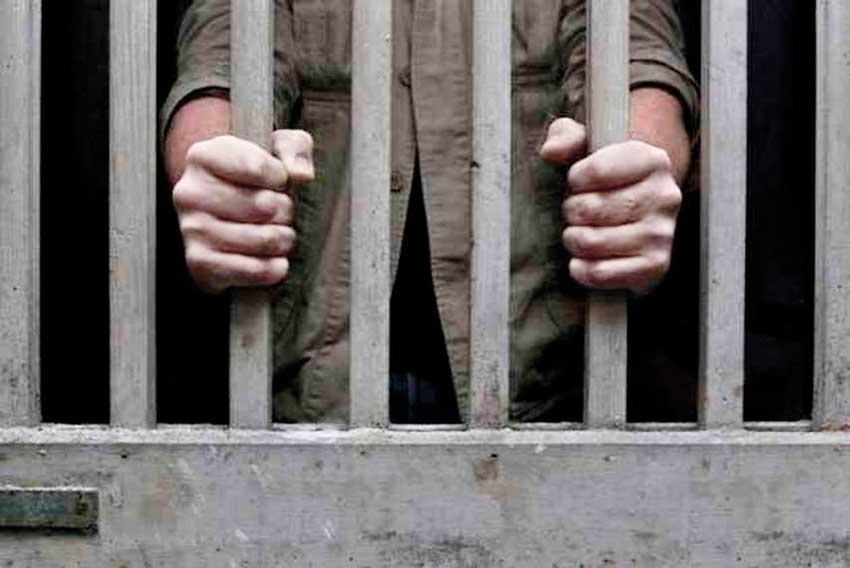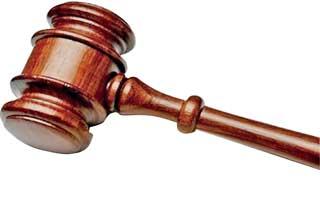Reply To:
Name - Reply Comment

The political agency will have custody over the detained individuals and has power to rehabilitate them .... Sri Lankans should be aware that they alone will bear the costs of this draconian scheme
 The Bureau of Rehabilitation Bill presented by the Minister of Justice is a shocking legislative proposal that must be rejected by the Parliament of Sri Lanka. It is misconceived, poorly drafted, inconsistent with the constitutionally entrenched separation of powers, violates protected civil liberties and offends the norms of constitutional democracy and the
The Bureau of Rehabilitation Bill presented by the Minister of Justice is a shocking legislative proposal that must be rejected by the Parliament of Sri Lanka. It is misconceived, poorly drafted, inconsistent with the constitutionally entrenched separation of powers, violates protected civil liberties and offends the norms of constitutional democracy and the
rule of law.
I have read many valuable commentaries on this Bill published in recent days by learned lawyers, academics and concerned citizens. I associate myself with most of those comments. I wish to offer the following additional observations.
Persons to whom the Act will apply
There are two classes of persons who may be committed to rehabilitation under draft section 4 (a) and (b) of the Bill. They are those who request to be rehabilitated and those required by law to be rehabilitated. Those who may be required by law to be rehabilitated are ‘ex-combatants, members of violent, extremist groups and any other group of persons’.

Those members who are not legally compelled may nevertheless request to be rehabilitated. This privilege is also granted to drug addicts.
A person would have to be out of his or her mind to request confinement in a high security rehabilitation centre with criminals and terrorists. Besides, what happens to a person who requests rehabilitation but changes her mind after experiencing it? The draft law is silent.
Consider now the second class. There are only two ways in which rehabilitation can be required by law. The first is by an Act of Parliament and the second, by a judicial or executive order validly authorised by an Act. An Act that directly commits specified individuals to deprivation of liberty will be a legislative judgment, an ad hominem law and hence a usurpation of judicial power. It will also clearly violate Article 13(2) under which ‘every person held in custody, detained or otherwise deprived of personal liberty shall be brought before the judge of the nearest competent court according to procedure established by law and shall not be further held in custody, detained or of liberty except upon and in terms of the order of such judge made in accordance with procedure established by law’.
A person would have to be out of his or her mind to request confinement in a high security rehabilitation centre with criminals and terrorists. Besides, what happens to a person who requests rehabilitation but changes her mind after experiencing it? The draft law is silent
The second way is by an executive or judicial order made according to law. Thus far, no court has made an order for the confined rehabilitation of a person at one of the proposed Centres. Therefore, this Bill (even if enacted), will be ineffective unless courts are specifically empowered by constitutionally valid legislation to order persons to be rehabilitated under its provisions. Such orders must follow a judicial determination following a fair trial. If Parliament expects courts to make the necessary rehabilitation orders, the law must, at a minimum, supply precise definitions of the terms ‘violent groups’, ‘extremist groups’ and ‘any other groups’, without which, courts of law will be at a loss to make lawful determinations.
The Government is perhaps aiming to commit persons to these camps (for that is what they are) by executive orders made under Emergency Regulations or the Prevention of Terrorism Act 1979. Such orders would impose deprivation of liberty on selected individuals, bypassing the judicial process. They would amount to a clear usurpation of judicial power in violation of Art 4(c) and will violate the rights and freedoms protected by Art 13. It is settled law that emergency regulations cannot override fundamental rights and freedoms guaranteed by the Constitution.
What is Rehabilitation?
Rehabilitation of persons serving prison sentences for crime is a long standing commendable practice in mature liberal democratic legal systems. These schemes are judicially sanctioned and supervised. They have no political dimension. There is another kind of reprehensible rehabilitation commonly practiced by authoritarian regimes directed at their political opponents. These are political programs designed to indoctrinate dissidents to give up their political, cultural or religious convictions and to embrace the regime’s ideology. Thus, in China, millions of Uighurs in the Xinjiang Province is being ‘rehabilitated’ in government run camps to compel them to shed their Islamic beliefs and culture. These practices have been condemned by the UN Human Rights Office as crimes against humanity.
Draft section 3 states that the Bureau’s objective is to rehabilitate the specified categories of persons ‘by adopting various therapies in order to ensure effective reintegration and reconciliation, through developing socio-economic standards’. These words make no sense. Developing socio-economic standards is a broad based national level undertaking. It is not something that can be achieved through ‘various therapies’ administered to individuals by a Bureau. Clause 37 that defines ‘rehabilitation’ makes no reference to ‘developing socio-economic standards’. Instead, it offers an open ended definition that talks of ‘optimising functioning’ by reducing disability of individuals ‘to be as independent as possible in everyday activities and enable participation in education, work, recreation and a meaningful life’. These terms need further explication to make legal sense. Hence, it is left to the rehabilitator to say what rehabilitation means in the particular case, when it is completed and when to release the inmate back to society. The rehabilitator is the government.
The Bureau is a Political Agency
Political rehabilitation has no place in a liberal democracy. Persons accused of crimes, whether political, personal or trivial, must not be punished or made to suffer deprivations except upon a fair trial before an independent and competent court. Forced rehabilitation is punishment and is unconstitutional in Sri Lanka unless judicially directed and supervised as authorised by law. The proposed law creates a powerful agency that can be used to suppress dissent.
The Bureau is set up as a state corporation with a separate legal identity. However, it is a full-fledged political agency of the government. The ex-officio members of the Bureau’s Council are government officers appointed and removed at the Executive’s pleasure. They include the Inspector-General of Police and the Secretaries of the Ministries of Defence, Rehabilitation, Health and Education. Three other members are appointed by the Minister’s choosing. The appointed members are removable at will by the Minister. The Commissioner-General, the CEO of the organisation is appointed on the recommendation of the Defence Minister.
The Minister in charge of rehabilitation has control of the Bureau in several other ways. Draft section 33 allows the Minister to issue to the Council general or special directions as to the exercise, performance and discharge of the powers, duties and functions of the Council. The Minister has power under draft section 34 to approve or reject rules made by the Council in respect of ‘any matter connected with the affairs of the Bureau’.
The Minister may under draft section 35 make regulations for the purpose of carrying out and giving effect to the principles and provisions of the Act, although the regulations are subject to parliamentary review.
The most extraordinary provision is draft s 17(1) under which the President may designate all or any members of the armed forces as persons authorised to exercise, perform and discharge the powers, duties and functions under the Act. This means the whole organisation can be militarised by a stroke of the Presidential pen.
This is the political agency that will have custody over the detained individuals and the power to rehabilitate them whatever that term means. Sri Lankans should be aware that they alone will bear the costs of this draconian scheme. There is no limit to the number of Rehabilitation Centres that can be established or the numbers of staff that can be hired at various levels. The Bureau will have no funds other than what is provided from the national budget at the expense of other outlays on essential services such as education, health and public safety. In a bitter irony, the more people protest, the more they will be asked to pay.
The writer is an Emeritus Professor of
Public Law, University of Queensland